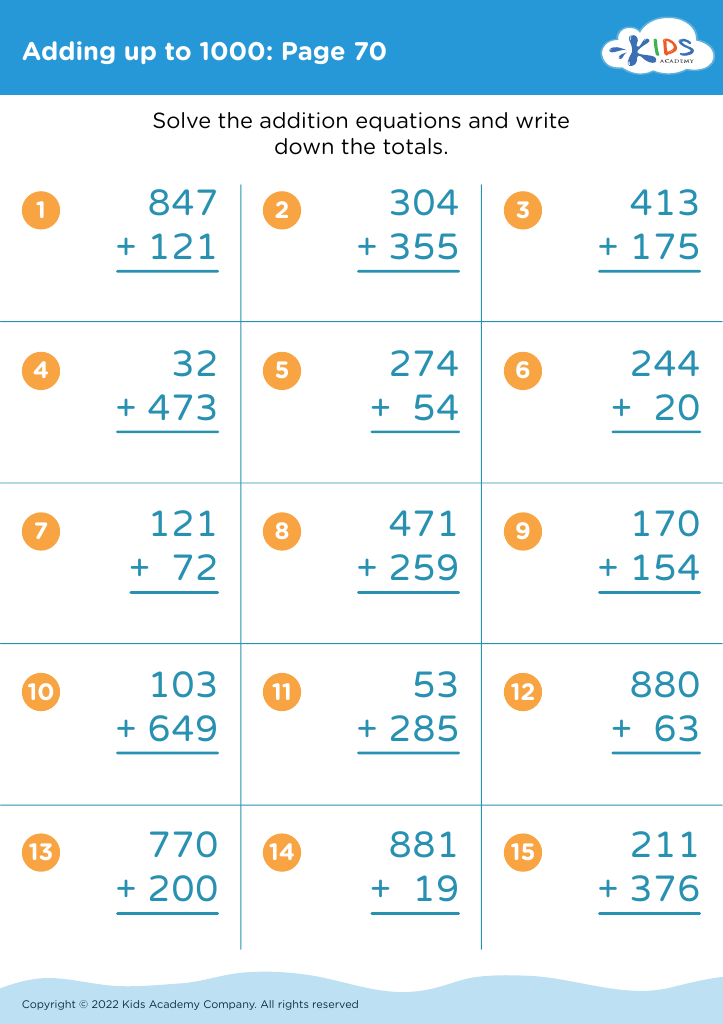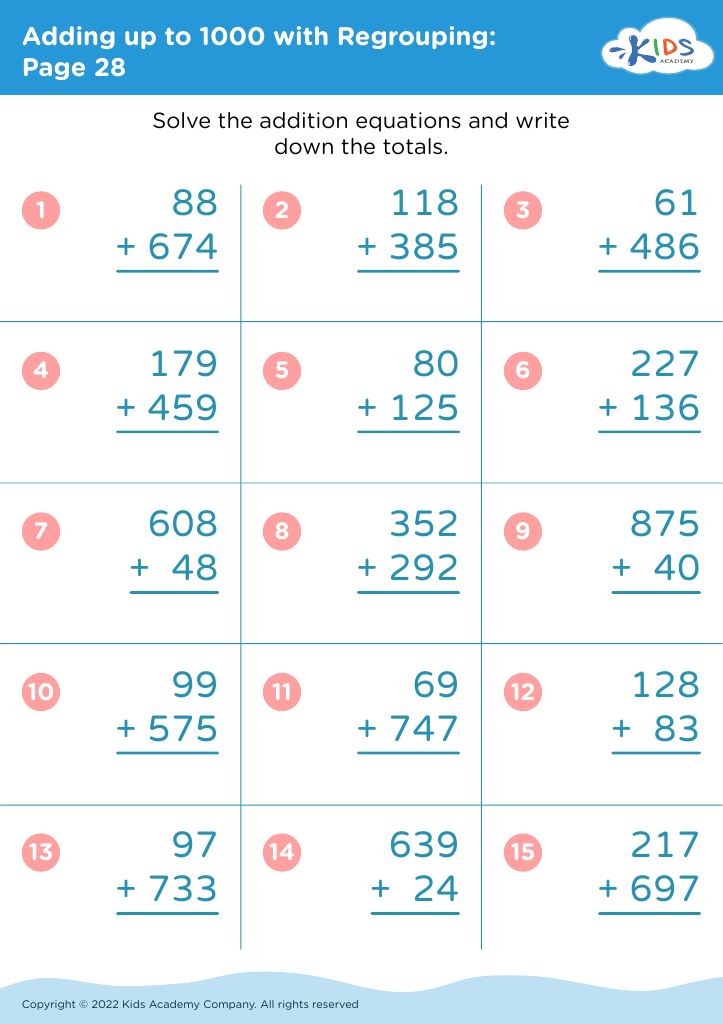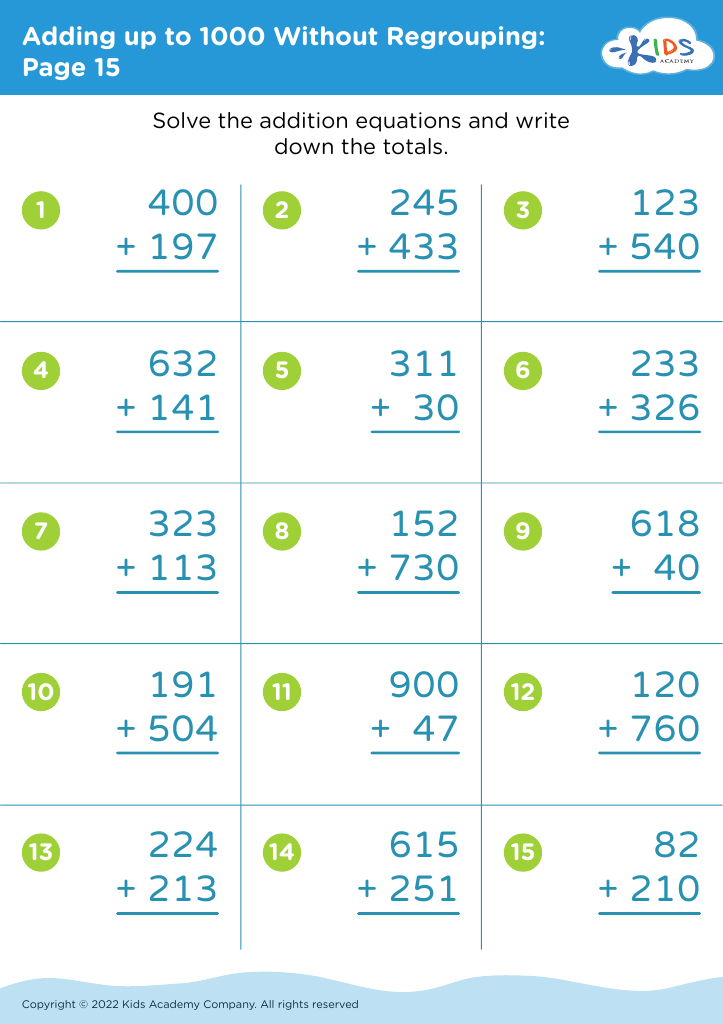Fraction Addition Adding up to 1000 Worksheets for Ages 7-8
5 filtered results
-
From - To
Boost your child’s math skills with our "Fraction Addition Adding up to 1000 Worksheets for Ages 7-8". Perfect for young learners, these engaging worksheets seamlessly guide kids through the basics of fractions and addition, enhancing their confidence and proficiency. With a variety of fun exercises and visually appealing content, our worksheets make complex concepts easy to grasp. These resources are designed to align with educational standards, ensuring kids grasp essential skills in a fun and supportive way. Watch them progress as they learn to add fractions effectively and develop a solid math foundation!
Fraction addition, even when the sums go up to a total of 1000, serves as an essential foundational skill for children aged 7-8. This concept may seem advanced, but it is a critical part of developing a child's mathematical proficiency and cognitive abilities.
At this age, children are in the formative stages of their mathematical journey. Learning to add fractions ensures they understand the principles of part-to-whole relationships, equivalence, and the importance of a common denominator. Mastering these concepts enhances a child’s ability to think abstractly and solve complex problems incrementally.
Engaging with fraction additions helps improve numerical literacy beyond just whole numbers, preparing children for more advanced arithmetic and algebraic concepts later in their education. Additionally, it introduces them to real-world applications, making mathematics tangible and relevant. For instance, they begin to comprehend situations involving measurements, cooking, and sharing equally among groups, which are foundational to everyday life.
For teachers and parents, nurturing these skills early instills confidence and promotes a positive attitude towards mathematics. This investment in primary mathematical education lays the groundwork for future academic success, as students who grasp early math skills generally perform better in higher-level math and science courses. Therefore, caring about teaching fraction addition up to 1000 not only benefits children in their current studies but also sets them up for long-term achievement.

















